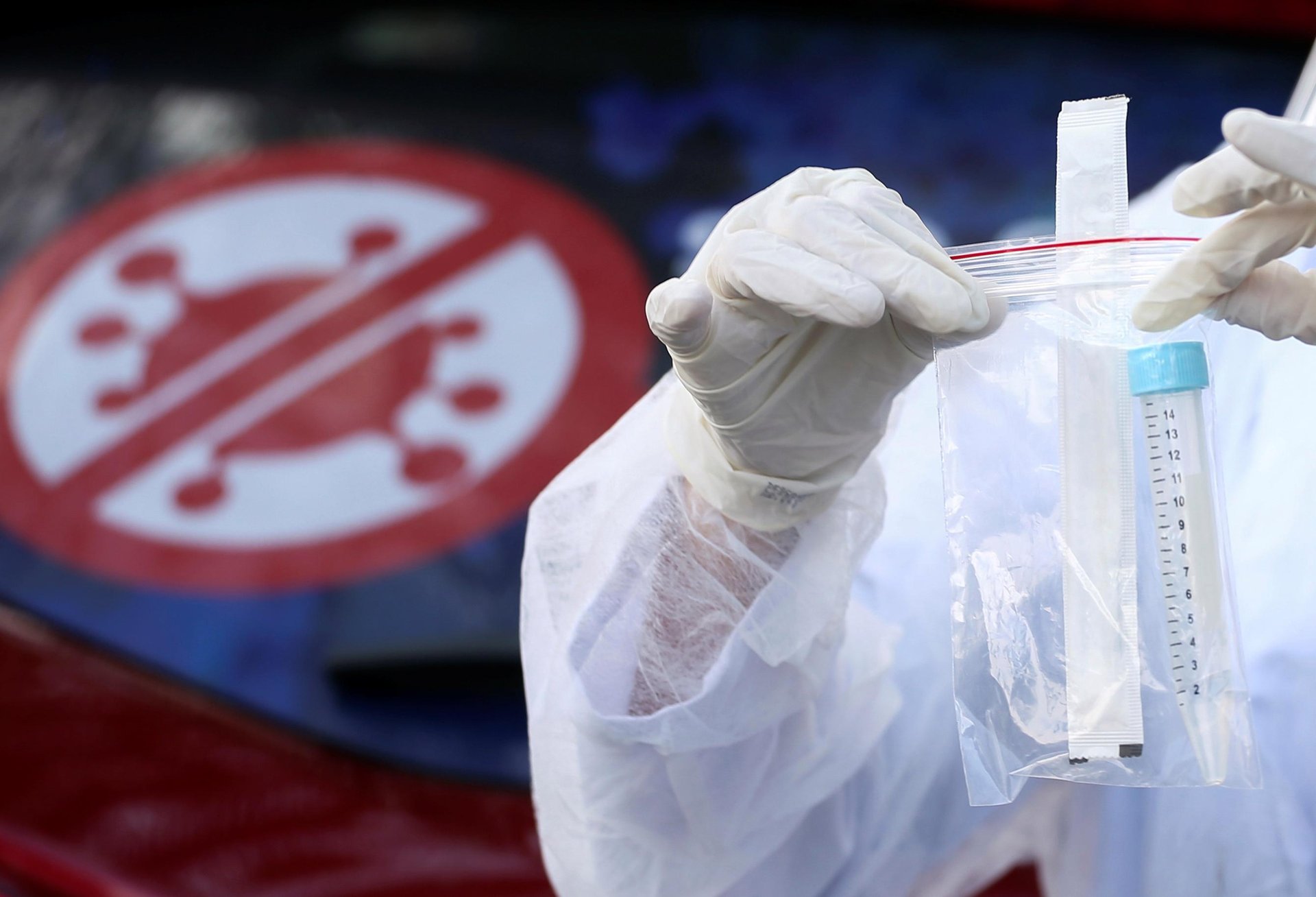Express Covid-19 testing may become the new norm before flying
Ahead of boarding their Emirates flight from Dubai to Tunisia yesterday (April 15), masked passengers were given blood tests for Covid-19, with results delivered within 10 minutes. Emirates, which claims to be the first airline to perform these tests, now intends to scale up its capabilities until they are available before any flight to destinations requiring the Covid-19 test certificates currently under consideration by countries such as Germany and the UK.


Ahead of boarding their Emirates flight from Dubai to Tunisia yesterday (April 15), masked passengers were given blood tests for Covid-19, with results delivered within 10 minutes. Emirates, which claims to be the first airline to perform these tests, now intends to scale up its capabilities until they are available before any flight to destinations requiring the Covid-19 test certificates currently under consideration by countries such as Germany and the UK.
These tests do not diagnose a current Covid-19 infection: Instead, they check for antibodies, which can reveal whether the person has been exposed to the virus and developed antibodies against it. Passengers still infected with the virus could still board and therefore contaminate others on the plane and at their destination.
“This technology is not designed or intended to diagnose medical conditions,” said Joerg Oppermann, Etihad vice president, in a statement. “It is an early warning indicator which will help to identify people with general symptoms, so that they can be further assessed by medical experts, potentially preventing the spread of some conditions to others preparing to board flights to multiple destinations.”
The coronavirus crisis has left airlines and airports hemorrhaging cash. They’ll likely continue to until they can get passengers flying once again—so, to speed up the process, many are throwing their weight behind in-airport testing facilities, though most are not as speedy as Emirates’ in-and-out approach.
Last week, Hong Kong was the world’s first airport to introduce mandatory Covid-19 testing. Passengers arriving from high-risk areas such as the UK or China’s Hubei province will be given rapid tests, with results available within eight hours. Those arriving from areas with fewer infections will also be tested, then sent home to await results. Whatever the outcome, passengers are required to self-quarantine for two weeks, enforced via tracking wristbands—waterproof paper bracelets printed with a QR code.
With air traffic down by more than 90% around the world, testing capacity at airports has not yet been stretched to its limit. But as the world moves out of its lockdown, country by country, robust testing of this sort is likely to become the new normal. Scaling it up may prove challenging: At Tokyo Narita Airport, passengers returning home from countries with high infection rates, such as Italy and the US, are required to undergo a virus check before they board public transport and leave the airport. This should ordinarily take six hours, but due to delays, test results are currently taking as much as two days to come in, according to Reuters reports. (Those who do not have friends and family who can pick them up must wait on the results at in-airport hotels or on heavy-duty cardboard beds set up in the terminal.)
But for countries such as the US and the UK, such wide-scale testing is still a long way off even in a healthcare setting. Rolling it into the check-in process, meanwhile, seems even more remote.